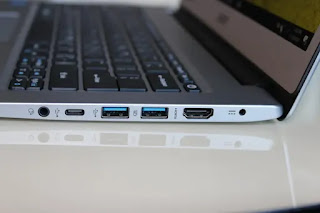Computer vs. Laptop: Unveiling the Ideal Choice for Performance, Portability, and Connectivity
Introduction
The advent of technology has changed the way we live and work, computers and laptops have become an important part of our lives. Computer or laptop both are being used in many places like school, office, hospital and other places. In this article, we will talk to you about the features, advantages and limitations of computer and laptop, so that it will help you to choose between computer or laptop.

Form Factor and Portability
The primary difference between a computer and a laptop lies in their form factor and portability. Computers, which usually consist of a desktop unit with a separate monitor, keyboard, and mouse, are designed for stationary use. They offer large screens, advanced ergonomics and a range of peripheral connectivity options. On the other hand, laptops, also known as notebook computers, offer the convenience of portability with an integrated design consisting of a monitor, keyboard, touchpad or trackpad, and other essential components. Laptops are lightweight, compact and allow easy mobility, making them ideal for users who are often on the go.
Power And Performance
In terms of performance, computers often have an edge over laptops due to their ability to accommodate higher powered components. Desktop computers can have great processors, dedicated graphics cards, and large memory capacities, providing better power for resource-intensive tasks such as video production, gaming, or data analysis. Additionally, computers can be easily upgraded, allowing users to customize their systems to suit their needs. Laptops, although more limited in terms of hardware customization, have improved greatly over the years and can handle a wide range of tasks, including multimedia consumption, office productivity, and moderate gaming. Many laptops also come with great processors, dedicated graphics cards, and large memory, but they tend to be more expensive than computers.
Energy Efficiency And Battery's Life
When considering energy efficiency and battery life, laptops have an advantage compared to computers. Due to their compact design and low power consumption, laptops are more energy-efficient and can operate for several hours on a single charge, making them ideal for users who need to work or access information while on the go. I require Computers, on the other hand, require a constant power source and consume more energy, but they provide consistent performance without the limitations of battery life.
Price And Affordability
Affordability is an essential factor for many users when choosing between a computer and a laptop. Generally, computers are more cost-effective in terms of performance, as their components can often be obtained at a lower cost than their laptop parts. Furthermore, the upgradeability of computers allows users to enhance their systems over time, thereby avoiding the need for a complete replacement. However, laptops offer the advantage of convenience and portability, and their prices have become increasingly competitive over the past few years, making them affordable for a wide range of users.
Conclusion
In conclusion, both computers and laptops have their own unique advantages and limitations, and the choice between the two ultimately depends on the user's specific needs, preferences, and budget. The computers offer better performance, customization options, and connectivity, making them suitable for power users and those who require extensive peripherals. On the other hand, laptops offer portability, versatility, and convenience to users who prioritize mobility and everyday computing needs. Ultimately, it is important to understand the trade-offs between these two computing tools in order to make an informed decision tailored to individual needs and circumstances.







Comments
Post a Comment